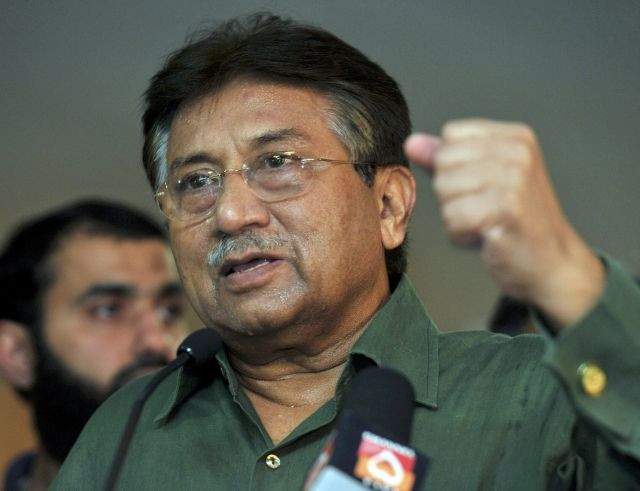Musharraf Ends Self-Exile, Arrives In Pakistan; Defies Taliban's Death Threats

Former Pakistani President Pervez Musharraf returned to his homeland Sunday afternoon, despite assassination threats issued by the Taliban. Supporters hailed his decision as he arrived in the southern city of Karachi, to lead his party in the May general elections.
Earlier in Dubai, before making the decision that ended his long self-exile, Musharraf said it was imperative to save Pakistan considering “terrorists” were aiming to destroy it. He added that he was returning in order to rescue the country, Pakistan’s Dawn News reported.
A Pakistani Taliban video released Saturday threatened Musharraf with snipers and suicide bombers.
The banned Tehrik-i-Taliban Pakistan (TTP) has also called upon insurgents in Pakistan's restive Balochistan province to join hands with the militant outfit to wage a war for implementing Sharia laws across the country.
The former military general had said he would come back at any cost and he was not afraid of extremists.
After resigning as president, Musharraf had remained in the country for eight months without heavy security. He arranged for his security himself, as he did not want to depend on the government.
A group of about 200 supporters and journalists accompanied Musharraf, including his party members from the U.K., Canada, Switzerland and the U.S., the BBC reported.
Musharraf, who seized power in a military coup in 1999, has survived several assassination attempts and conspiracies against him during his nine years of rule.
He left the country in 2008 and had been living a quiet life of self-imposed exile in London and Dubai.
His support for former U.S. President George W. Bush’s “war on terror,” in the aftermath of 9/11 made him unpopular among anti-U.S. groups in his homeland, including the Taliban and al Qaeda.
In July 2007, he ordered security forces to storm the Red Mosque and its adjacent Islamic school in Islamabad, resulting in the deaths of more than 100 people.
Clerics and students of the mosque were accused of campaigning to impose strict Sharia law in Pakistan's capital.
The resultant seizure of the mosque and the school had sparked clashes between soldiers and Islamist militants in the country’s lawless northern tribal belt.
© Copyright IBTimes 2025. All rights reserved.






















